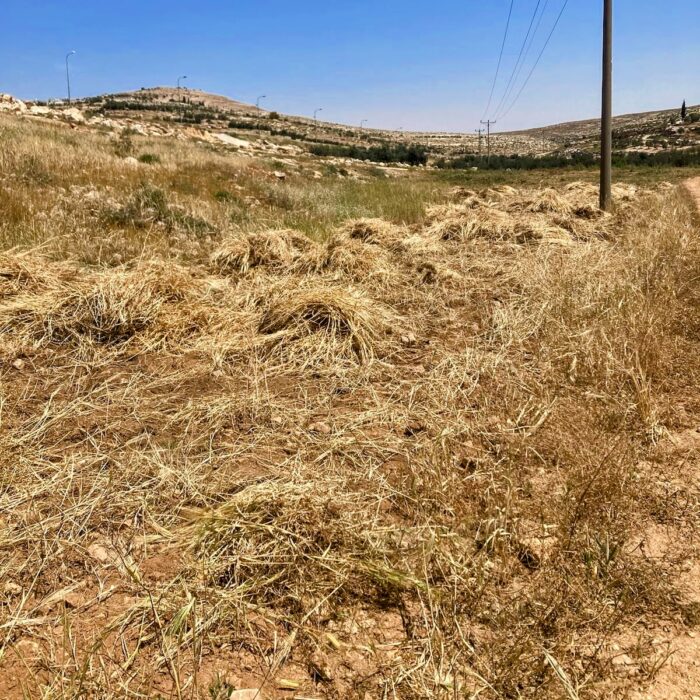After a late night I awoke at 5:30 with the family I was staying with and began walking down the dirt road from their house with the father, mother, three young boys, and flock of about 30 sheep. Instead of going west into the valley where the sheep usually graze, we walked a mile east and stopped in a large field of wheat just before the main road. It then dawned on me why the boys had made sweeping motions with their hands before we left: we were going to harvest the wheat.
Donate to sustain the work, here!
Through my translator app, the father told me that he used to own a tractor but that settlers stole it the previous year. Now they have to sow and reap the wheat by hand.
At first the work was pleasant and I felt like Levin in Anna Karenina (albeit without a scythe), finding spiritual satisfaction with voluntary, short-term physical labor. The father sang and I eased into the rhythm of pulling the stalks up and tapping dirt from the roots. But then the day got hotter and my hands began to cramp and blister and then I cut my finger on a razor blade hidden in the long grass and settlers in an ATV drove slowly over our piles while glaring at us and holding guns. A person can never let their guard down for long here. This is a brutal way to live.
A few miles away in Tuwani, where the volunteer house is, settlers surrounded the mosque and harassed a Palestinians coming to pray. They have never stationed themselves there before and it is unclear if they did so because it is the last day of Eid or if they are still amping up for a raid.
